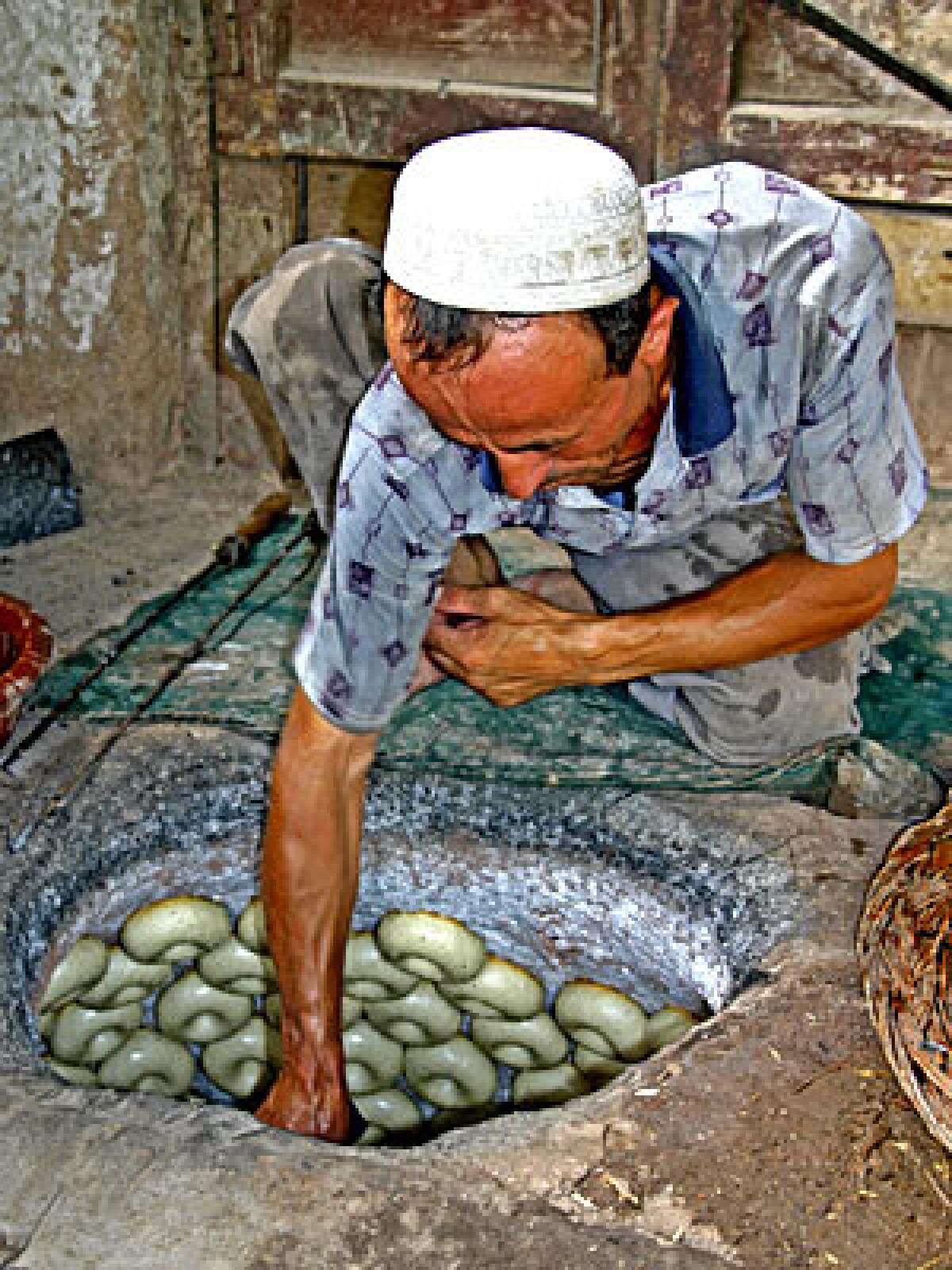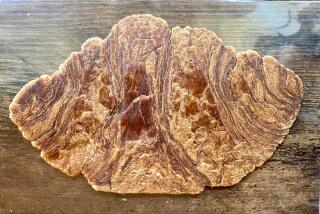Bagels, OK, girda nan, are a hot commodity in China too

A bagel is one of the last things you’d expect to find in the kind of isolated regions where I travel in my work as a photographer of indigenous peoples -- which is a problem, because I love bagels and suffer if a week goes by without one. But on a recent expedition, I was driving through remote northwestern China photographing the Uighurs, a Turkic-speaking people who for centuries have lived on their land, oblivious while international borders changed around them. I pulled the car over at a street market in a rural village outside the city of Kashgar near the Pakistani border. As I stepped out of the car I couldn’t believe my eyes or nose -- before me was a pushcart piled high with fresh, hot bagels.
I bought one and savored every bite as I considered this completely unexpected connection to home.
Now I’m usually the only foreigner in these out-of-the-way places, so I always attract a crowd. Seeing my interest in their local delicacy, a friendly mob pushed and shoved me into the nearest house, where the local populace could not wait to give me the Grand Bagel Tour.
Inside the house, a man was pounding a slab of dough with his fists while another spun around long strands of kneaded dough like a cowboy with a lariat. Next to those gentlemen, a lady was rolling the dough flat and then forming the familiar doughnut shape from the gooey mass in front of her.
In the backyard, a man tended a wood fire inside a terra-cotta tandoor oven known as a tono. It was shaped like a beehive with an open top, and was capable of reaching an interior temperature of 900 degrees. When the dough was brought out to be baked, each piece was placed by hand around the inside of the oven, where the hot, absorbent clay adhered to the fresh, moist dough, holding the raw bagels in place the way tandoor ovens hold nan.
In demand
The bagels were watched closely and when they turned a golden brown, an old, bent coat hanger was employed to remove them to hand-woven straw baskets, which a line of waiting women then whisked to several street corner stands. They were devoured by hungry locals as fast as they arrived.
The town had no means of refrigeration, hence no such thing as lox or cream cheese. The bagels were eaten as they arrived, straight from the oven -- and in my opinion, they needed no enhancement.
The local name for these bagels is girda nan or nang, depending on who is doing the spelling, and among the Uighur people there are more than 40 types of bread made from wheat and corn flours, with bagels leading the way.
I know nothing about how bagels are made, so when I arrived home I contacted award-winning food writer Naomi Duguid who, along with her husband, Jeffrey Alford, wrote the wonderful “Beyond the Great Wall: Recipes and Travels in the Other China,” a cookbook exploring the intricacies of Chinese cuisine, in hopes that she could unravel the mysteries of Chinese bagels for me.
Bread’s crucial role
Duguid explained that in Uighur culture, bread is central. “A meal is not a meal without bread,” she said, adding that the main difference between the Uighur bagels and ours is boiling. In the U.S., the dough is boiled before baking, which creates the crusty outer texture while allowing the inside to remain soft and chewy.
But it’s not just in the hinterlands of China that bagels have caught on.
In Beijing, Mrs. Shanen’s Bagels are a local staple that had record sales during the recent Olympic Games thanks to homesick Americans in need of a familiar taste. Shanen is the former Lejen Chen, a transplanted Chinese American New Yorker who missed her traditional treat after marrying and moving to Beijing. She and her husband started a baking company more than 10 years ago that now offers 26 kinds of bagels. In Beijing they are called beiguo and an Internet search on Google China will tell you they are “donut-shaped Jewish bread.”
In Guangzhou, Danny’s Bagels is a good old American-style fast food place with such staples as pizza and burgers, but bagels are high on the bestseller list and have been delighting local palates since 1997.
It seems only a matter of time before this American icon spreads across China and, for all the differences between our countries, America’s most effective ambassador may just end up being the bagel.
Dorsey is a freelance writer.
More to Read
Sign up for our L.A. Times Plants newsletter
At the start of each month, get a roundup of upcoming plant-related activities and events in Southern California, along with links to tips and articles you may have missed.
You may occasionally receive promotional content from the Los Angeles Times.






